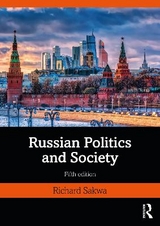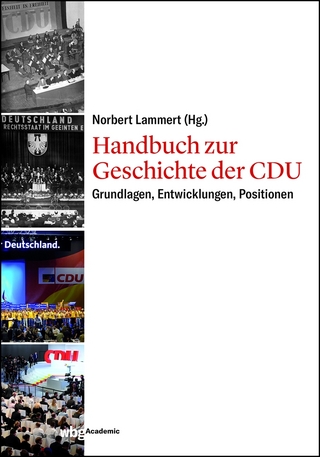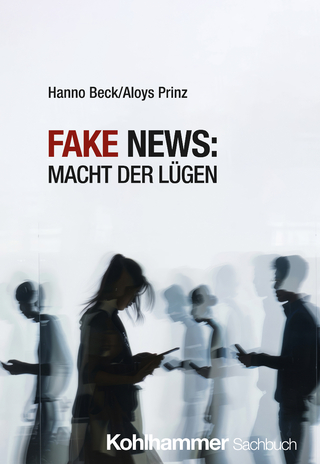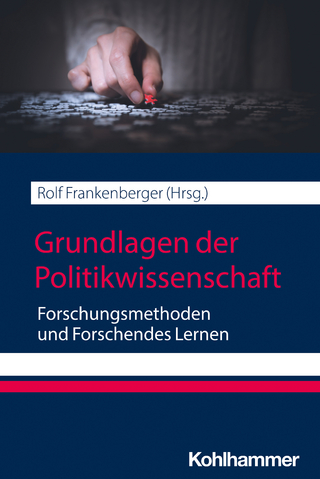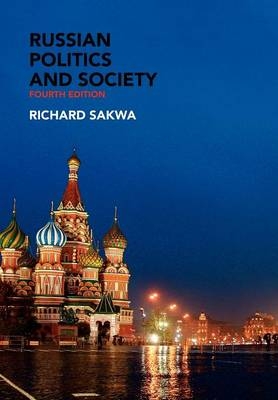
Russian Politics and Society
Routledge (Verlag)
978-0-415-41528-6 (ISBN)
- Titel erscheint in neuer Auflage
- Artikel merken
Having been fully revised and updated to reflect the considerable changes in Russia over the last decade, the fourth edition of this classic text builds on the strengths of the previous editions to provide a comprehensive and sophisticated analysis on Russian politics and society. New to this edition:
extended coverage of electoral laws, party development and regional politics
new chapter on the ‘phoney democracy’ period, 1991-93
historical evaluation of Yeltsin’s leadership
full coverage of Putin’s presidency
discussion of the development of civil society and the problems of democratic consolidation
latest developments in the Chechnya conflict
more on foreign policy issues
the re-introduction of the Russian Constitution as an appendix
an updated Select Bibliography
more focus on the challenges facing Russia in the twenty-first century.
Written in an accessible and lively style, this book is packed with detailed information on the central debates and issues in Russia’s difficult transformation. This makes it the best available textbook on the subject and is essential reading for all those concerned with the fate of Russia, and with the future of international society.
Richard Sakwa is Professor of Russian and European Politics at the University of Kent.
Part 1: The Fall of Communism and the Rebirth of Russia 1. Soviet communism and its dissolution 1.1 The Soviet system 1.2 Perestroika 1.3 The emergence of Russia 1.4 Popular insurgency and regime decay 2. The disintegration of the USSR 2.1 The August coup 2.2 The disintegration of the USSR 2.3 Problems of state building 3. Phoney democracy, 1991-1993 3.1 Phoney democracy – the road to October 1993 3.2 Genesis of a tragedy 3.3 The troubled path to the constitution Part 2: Political Institutions and Processes 4. Constitutionalism and the law 4.1 The 1993 constitution 4.2 The Constitutional Court 4.3 The legal system and its reform 4.4 Law and constitutionalism 5. Crime, corruption and security 5.1 Crime and the mafia 5.2 Corruption, meta-corruption and anti-corruption 5.3 The security apparatus and politics 5.4 Human and civil rights 6. The executive 6.1 The presidency 6.2 The government 6.3 Prime ministers and their policies 6.4 Public administration: from nomenklatura to civil service? 7. Party development 7.1 Stages of party development 7.2 Normative framework of party development 7.3 The party system today 7.4 Problems of social representation 8. Electoral politics 8.1 Founding elections and electoral management .2 The electoral system and its reform 8.3 The experience of elections 8.4 Direct democracy: referendums 8.5 Electoral engagement 9. The legislature 9.1 The State Duma 9.2 The Federation Council 9.3 Parliamentarianism and Russian politics Part 3: Nationalism, Federalism and Regionalism 10. National identity and state building 10.1 From empire to state 10.2 Russian nationalism and national identity 10.3 State building: borders and citizenship 11. Federalism and the new state 11.1 Ethno-federalism and its legacy 11.2 Russian federalism 12. Segmented regionalism and the new federalism 12.1 Segmented regionalism 12.2 Putin’s ‘new federalism’ 12.3 Segmented regionalism and asymmetrical federalism Part 4: Economy and Society 13. Russian capitalism 13.1 The road to the market 13.2 The Russian economy today 13.3 Evaluation of market reform 14. Society and social movements 14.1 Social structure and dynamics 14.2 Welfare and incomes 14.3 Social movements 14.4 Para-constitutionalism and non-governmental organisations (NGOs) 15. Cultural transformation 15.1 The media 15.2 Culture and the intelligentsia 15.3 Religion and the state 15.4 Political culture and public opinion 15.5 Crisis of values Part 5: Foreign, Security and Neighbourhood Policy 16. Foreign policy 16.1 The development of Russian foreign policy 16.2 The structure of policy-making 16.3 The debate over foreign policy 16.4 Russia and the world 17. Defence and security policy 17.1 The end of the Soviet armed forces 17.2 The great retreat 17.3 Military and security doctrines 17.4 Nuclear politics and non-proliferation 17.5 Military reform 17.6 Civil-military relations 17.7 New security paradigms 18. Commonwealth, community and fragmentation 18.1 The Commonwealth of Independent States 18.2 Regional organisations 18.3 Minorities and Russians abroad Part 6: Dilemmas of Democratisation 19. Problems of transition 19.1 The challenge of history 19.2 Transitional justice 19.3 Models of transition 20. Democracy in Russia 21. Problems of democracy 22. Regime politics 23. Leadership and regime change 24. A struggling democracy? Appendix The Russian constitution Select bibliography Index
| Erscheint lt. Verlag | 7.4.2008 |
|---|---|
| Zusatzinfo | 12 Line drawings, black and white; 38 Tables, black and white; 12 Illustrations, black and white |
| Verlagsort | London |
| Sprache | englisch |
| Maße | 174 x 246 mm |
| Gewicht | 998 g |
| Themenwelt | Sozialwissenschaften ► Politik / Verwaltung |
| ISBN-10 | 0-415-41528-4 / 0415415284 |
| ISBN-13 | 978-0-415-41528-6 / 9780415415286 |
| Zustand | Neuware |
| Haben Sie eine Frage zum Produkt? |
aus dem Bereich
